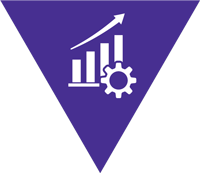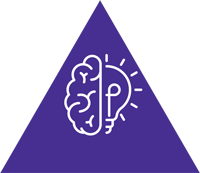
This article was first published in the Lex Witness April 2017 issue.
This is in continuation to the last issue’s write up on a similar topic – Technology & the Legal Profession – A Marriage Much Talked About, we explored the ways use of technology has changed the legal industry. From ERP systems to various forms of Practice Management systems, law firms and in-house teams alike have adopted to the new and efficient ways of managing caseloads and running a business in the modern times. But the question that arises is, how dependent have we become on technology, and whether the advent of some of these cutting edge softwares can lead to making a few roles and business relationships redundant?
Conversations with law firm Partners and General Counsels reveal that no matter how advanced a technology may be, it can never substitute the value of a brilliant mind. A software can help eliminating redundancy within a process purely from a work efficiency perspective. However, it can never offer the advisory services that a legal counsel brings to the table.
If we look at the role of an in-house counsel, the core job is to understand the business and think of legal solutions that can benefit or safeguard the company’s interest from a holistic perspective. When it comes to a law firm Partner, the focused expertise in the industry or the specific legal practise through years of experience in the field is always unparalleled, compared to technology.
While there have been quite a few sagas behind how crucial it is to upgrade yourself in terms of technology trends so as to stay in the rat race out there, there have been debates as well around the fact that is technology gradually eating out on the contributions of what a human being can make. For a change, here are some basic reasons as to why can technology never replace the power of a human mind.
Faster Isn’t Wiser
There are no disputes about the fact that technology is a platform one can rely on for time sensitive work, and in the process avoid unnecessary billing hours. However, this does not necessarily mean that it is the smarter option. As an example, a research software is quiet handy when it comes to sorting through case files that are linked or in the same genre, like music copyright law suits in the year 2016. But only a focused lawyer’s mind with clarity on what the parameters for the required search is, can actually make the exercise worthwhile. Depending on the matter at-hand and the strategy that needs to be built to win the case, the required search parameters may entail much more than the basic search criteria a software might pick up on.
Value in Experiences, Not Numbers
Technology is terrific when it comes to multi-tasking efficiently. However, even an advanced AI, can never be a substitute for the value of the vast experience and most importantly intuition and network, a trained legal mind can bring to the mix.
Artificial Isn’t Real
Technology can be a wonderful support system in streamlining operations and process management. But it cannot provide the comfort of human interaction, or adopt to a certain work culture to ensure work compatibility, and in turn increasing the work efficiency of an entire team.
It’s About Analysis, Not Storage
Advanced technology, like cloud based storage is unparalleled when it comes to ensuring data storage in a secured and cost-effective manner. But when it comes to using the same data for winning legal matters or safeguarding a business against prospective legal threats, it is only a legal expert who can specialize in analyzing this data to use to one’s best interest in the need of the hour.
Are We Ready to Metamorphose?
Certainly the roles have been evolving, wherein more value in now placed on the advisory services that external counsels provide to the in-house legal heads. Junior Associates, in-house and law firm alike, are now being trained from the inception on the tricks of the law along with an emphasis on personal growth as a lawyers through CLEs, conferences, thought leadership and stakeholder relationship management. Even within law firms, less focus is now on put on their ability to be able to draft a basic contract and more value in thrust on case strategy building and management. All of this further emphasizes on the importance of soft skills compared to technology in times to come.
Surely technology plays a key role when it comes to minimizing errors in terms of basic contract preparation, or ensures best practices in terms of portfolio and/case management and business administrative operations. But nevertheless, human capital is an incomparable asset that no technology can even aspire to replace!
I am the Principal Consultant at the Lex Witness Strategic Counsel Desk, an invitation based initiative, which caters to various entities who seek to create and improve their brand and undertake market activation strategies in the Indian legal market space. Much beyond the space of the magazine, the Strategic Counsel Desk aspires to provide a holistic framework for the firm’s positioning and business growth, primarily focusing on the strength in the Indian legal industry.








